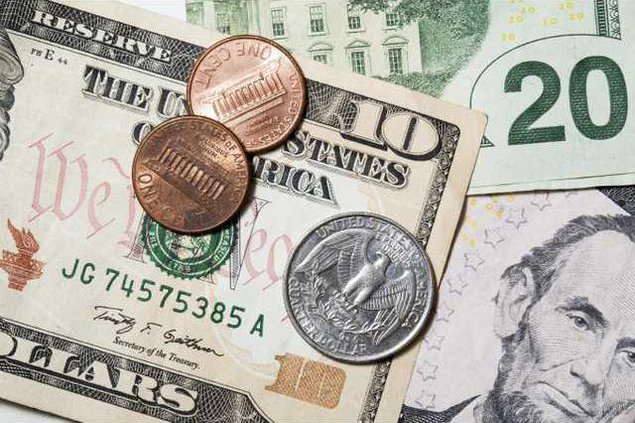Voters in four states voted at the polls Tuesday to give themselves a raise. Beginning in January, some of the lowest-paid workers in Alaska, Arkansas, South Dakota and Nebraska will have bigger paychecks.
These states follow in the footsteps of a dozen other states that have hiked their minimum wage since 2013, and the number of states with minimum wages higher than the federal level of $7.25 an hour is now 28.
Tuesday's voters passed increases with easy majorities in most cases—Alaska's wage went from $7.75 to $9.75 with a two-thirds majority, and 65 percent of voters in Arkansas raised the wage from $6.25 to $8.50 by 2017.
San Francisco also approved a ballot measure to raise its minimum wage to $15 by 2018, which means it will match Seattle for the highest minimum wage in the country.
In polls, a majority of Americans support raising the federal minimum wage. Sixty-nine percent of voters, including 45 percent of Republicans, supported raising the minimum wage to $10.10 according to a Bloomberg report.
However, there is significant dissention over how wage hikes might affect jobs. One Congressional Budget office study projected that raising the minimum wage would create a tricky tradeoff: it would lift the incomes of 16.5 million people while eliminating 500,000 jobs.
Poll respondents were split on the jobs-versus-wages question, with 45 percent saying that the tradeoff wasn't worth it.
Matthew Patinkin, who owns two Auntie Anne's Pretzels stores in San Francisco, told the Wall Street Journal that the hike will force him to raise prices there.
“When any expense goes up it impacts our business, and this increase is dramatic,” Patinkin said.
He also owns 64 franchises of the pretzel chain in seven states and said that, while he supports raising the minimum wage, San Francisco's is too high.
“Some managers will be making less than their workers, so I’ll need to raise their wages, too,” Patinkin said, “so it affects everybody across the scale.”
Christine Owens, executive director of the National Employment Law Project Action Fund, supports wage hikes and notes that it has support from both red and blue states.
“Faced with an unresponsive Congress and opposition by Republican-controlled legislatures in a number of states, Americans came out in force to vote for minimum wage increases across the country,” she told NBC. "Rare is the issue that can bring together voters in South Dakota and San Francisco.”
Some of the muscle behind wage hikes has come from fast food and retail workers that have campaigned to raise pay to $15 an hour the last couple years. A full-time worker earning the minimum wage earns just over $15,000 a year, which falls below the poverty line for families.
Almost 23.2 million Americans (17.8 percent of all wage and salary workers) worked in the nation’s lowest-paid occupations as of last year, according to the Pew Research Center.
A Heritage Foundation report says that raising pay for fast food workers to $15 per hour would force fast food restaurants to raise prices by 38 percent while seeing their profits fall by 77 percent.
Other economists predict the price raise woud be much lower, around four percent, and note that if prices went up across the board, rather than putting places out of business, it could boost consumer spending, and boost retention and job growth.
The Raise the Minimum Wage campaign makes another argument, saying that if a small business can't pay a living wage, perhaps it is not a good business.
Email: laneanderson@deseretnews.com





